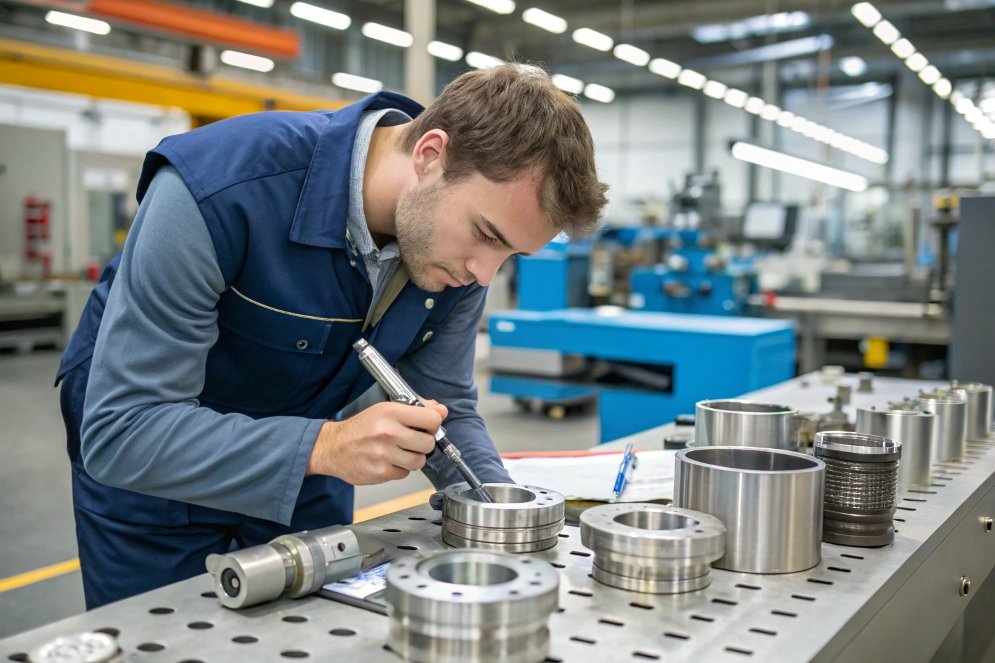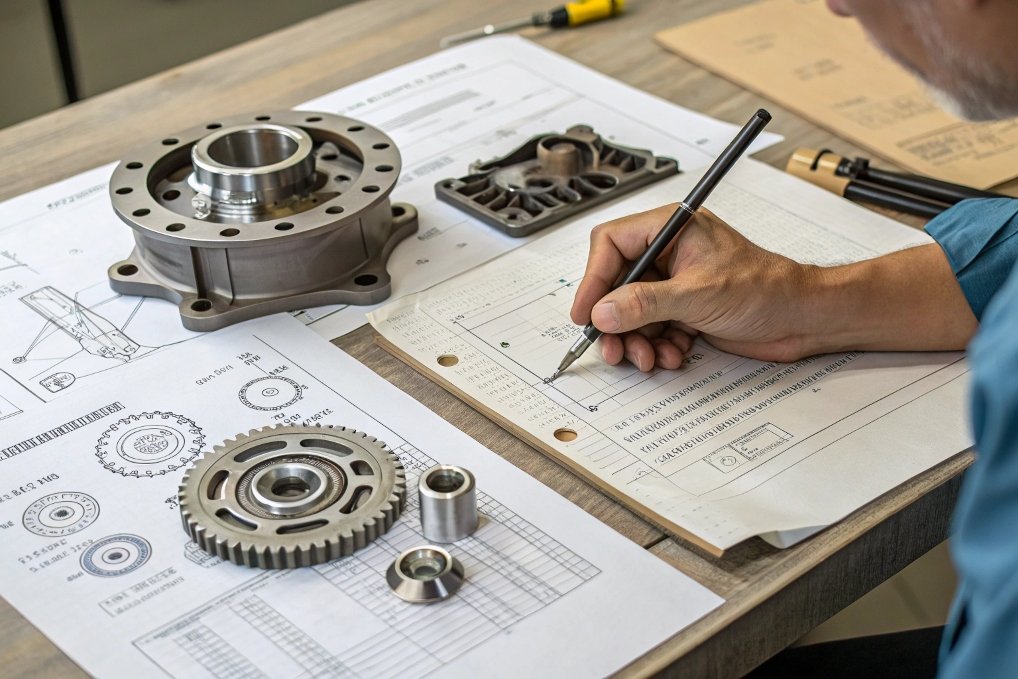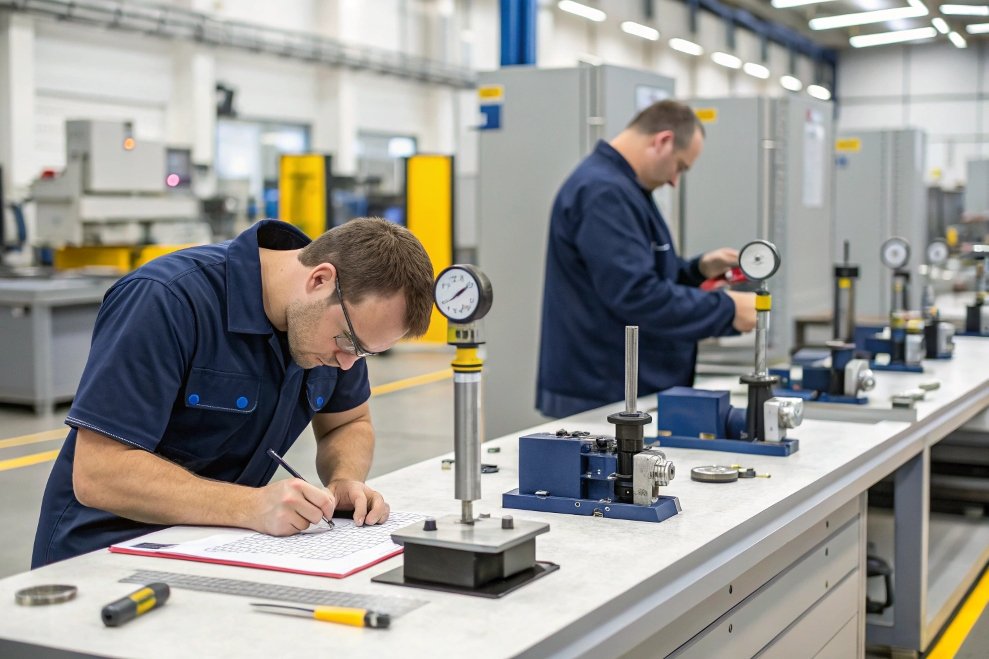
Ensuring that custom parts meet industry standards1 has always been a top priority for my business. I’ve learned that not adhering to these standards can lead to delays, customer dissatisfaction, and even costly rework. It’s crucial to know exactly what those standards are and how to meet them, especially when working with overseas suppliers. Over the years, I’ve realized that collaborating closely with suppliers and implementing clear processes for quality control is the best way to ensure compliance.
Ensuring your custom parts meet industry standards is essential for product quality, safety, and regulatory compliance. It requires clear communication with suppliers, a solid understanding of industry requirements, and a well-managed quality control process2.
In this article, we’ll explore how to identify the right standards, ensure compliance throughout manufacturing3, and why it’s essential to work with your supplier to meet these requirements.
What Are the Key Industry Standards Custom Parts Should Meet?

There are several key industry standards that custom parts should meet, depending on their application, material, and intended use. Understanding these standards is critical for ensuring that your parts are not only functional but also legally compliant and safe.
Key Industry Standards for Custom Parts
| Industry | Key Standards |
|---|---|
| Automotive | ISO/TS 16949, IATF 16949, SAE (Society of Automotive Engineers) standards |
| Aerospace | AS9100, AS9110, FAA (Federal Aviation Administration) regulations |
| Medical Devices | ISO 13485, FDA regulations, CE marking |
| Electronics | IPC-A-610, RoHS (Restriction of Hazardous Substances) |
| Food and Beverage | FDA regulations, HACCP (Hazard Analysis Critical Control Points) |
| Construction | ASTM (American Society for Testing and Materials), ISO 9001 |
Adapting to Specific Requirements
Each industry has its own set of standards to ensure that parts meet safety, performance, and quality requirements. Understanding these standards will guide your design and manufacturing processes, helping you avoid costly errors or non-compliance. It’s essential to consult these standards early on in the design phase to avoid delays during production.
How Can You Ensure Compliance with Industry Standards in Custom Parts Manufacturing?

Ensuring compliance with industry standards throughout the manufacturing process requires a combination of knowledge, documentation, and oversight. It’s not enough to simply know the standards; they must be integrated into every step of production, from design to final inspection.
Steps to Ensure Compliance with Industry Standards
| Step | How It Helps Ensure Compliance |
|---|---|
| Research and Understand Standards | Before production begins, ensure that you fully understand the relevant industry standards and regulations. |
| Supplier Certification and Audits | Work with suppliers who are certified in industry standards, and conduct regular audits to ensure they maintain compliance. |
| Quality Control Protocols | Implement strict quality control protocols at each stage of the production process, ensuring that parts are checked for adherence to standards. |
| Testing and Inspection | Conduct regular testing and inspections, including functional testing and dimensional checks, to ensure parts meet specified standards. |
| Documentation | Maintain thorough records of compliance, testing, and inspections to demonstrate adherence to regulatory requirements. |
Continuous Monitoring
Compliance isn’t a one-time task—it requires ongoing monitoring and inspections. Regular audits, quality checks, and testing ensure that your parts remain up to standard throughout the production process. This not only guarantees quality but also protects your business from legal or financial consequences due to non-compliance.
Why Should You Collaborate with Your Supplier to Meet Industry Requirements?

Collaborating closely with your supplier is crucial for ensuring that your custom parts meet industry standards. Suppliers are often the first line of defense in preventing compliance issues, and working together on quality control, documentation, and production processes can greatly reduce the risk of errors.
Importance of Supplier Collaboration for Industry Compliance
| Benefit | How Collaboration Helps |
|---|---|
| Shared Responsibility | Ensures both parties are aligned on industry standards and quality requirements, reducing the risk of errors. |
| Better Communication | Regular communication ensures that issues are identified and addressed early, minimizing delays or non-compliance. |
| Improved Quality Control | Suppliers with expertise in your industry’s standards can help develop and implement better quality control processes. |
| Enhanced Traceability | Working together makes it easier to trace each step of the production process and demonstrate compliance. |
| Faster Issue Resolution | If an issue arises, a collaborative approach helps resolve it quickly and efficiently, preventing production delays. |
The Benefits of a Strong Supplier Relationship
By working closely with your supplier, you can ensure that they understand your specific requirements and quality expectations. This helps to avoid mistakes, reduces rework, and ensures that the final product is compliant with industry standards. Building a long-term, trusting relationship with your supplier will pay off when it comes to compliance and overall product quality.
Conclusion
Ensuring your custom parts meet industry standards is crucial for maintaining quality, safety, and legal compliance. By understanding the relevant standards, integrating them into every phase of production, and collaborating with your supplier, you can significantly reduce the risk of non-compliance. With proper planning, communication, and quality control, you can be confident that your custom parts will meet the highest standards and support the success of your business.
Exploring this resource will provide you with comprehensive insights into industry standards, ensuring your custom parts meet necessary regulations. ↩
This link will guide you through establishing a robust quality control process, crucial for maintaining compliance and product quality. ↩
Discover effective strategies to maintain compliance throughout manufacturing, which is vital for product safety and regulatory adherence. ↩


